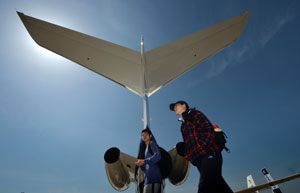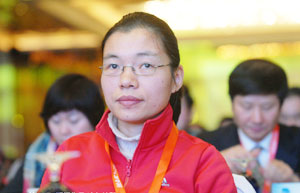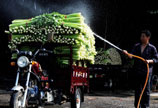Many Chinese firms looking overseas: Poll
By Hu Yuanyuan and Lyu Chang (China Daily) Updated: 2014-04-17 07:19These companies are most likely to claim that they have "systematic and comprehensive strategies concerning when, where and how to play in the global marketplace". Even these champions of globalization, however, have reported tensions and competing demands in overseas operations.
According to the report, the key to growing successfully overseas is effective execution of a balanced and sustainable global operating model in four key areas: culture, governance, processes and people.
|
 |
 |
And in terms of people, developing global teams from the very top, hiring and incentivizing local talent, and providing development and deployment opportunities for expatriates also matter.
"Chinese globalizers must find the right balance," Schwab said. "Achieving this means developing global operating models that manage these four areas on both the strategic and the executive levels."
China has become the world's third-largest investor for outward foreign direct investment last year, but the total accumulated value of FDI is still small, accounting for a mere one-tenth of what US counterparts achieved last year, Jiang Zengwei, chairman of the China Council for the Promotion of International Trade said during the eighth Chinese Enterprises Outbound Investment Conference.
"Chinese firms are facing many challenges and uncertainties in taking to the global stage, as trade protectionism keeps growing, and a politically and economically unstable environment have put off global investors," he said. "To succeed, Chinese enterprises need to work closely with local government, financial institutions and their counterparts in local markets."
- Foreign realty attracts China investment
- 119 outbound investment deals suffer problems
- Overseas firms making sure they keep their hands clean
- Companies going overseas turning to widening world of opportunities
- High-end talent needed to enhance business ventures overseas
- Chinese companies expect more overseas contracts
- China's rare earth firm Q1 profit slumps 70%
- Sinopec to pay $1.2b for stakes in Lukoil projects
- US urged to 'understand' yuan issue
- Thinking big and caring big in FMCG market
- Jaguar Land Rover aims for sustainable growth in China
- Silk Road tourism fair set for September in Xi'an
- China's first bitcoin ATM debuts in Shanghai
- Leaving on a jet plane

















